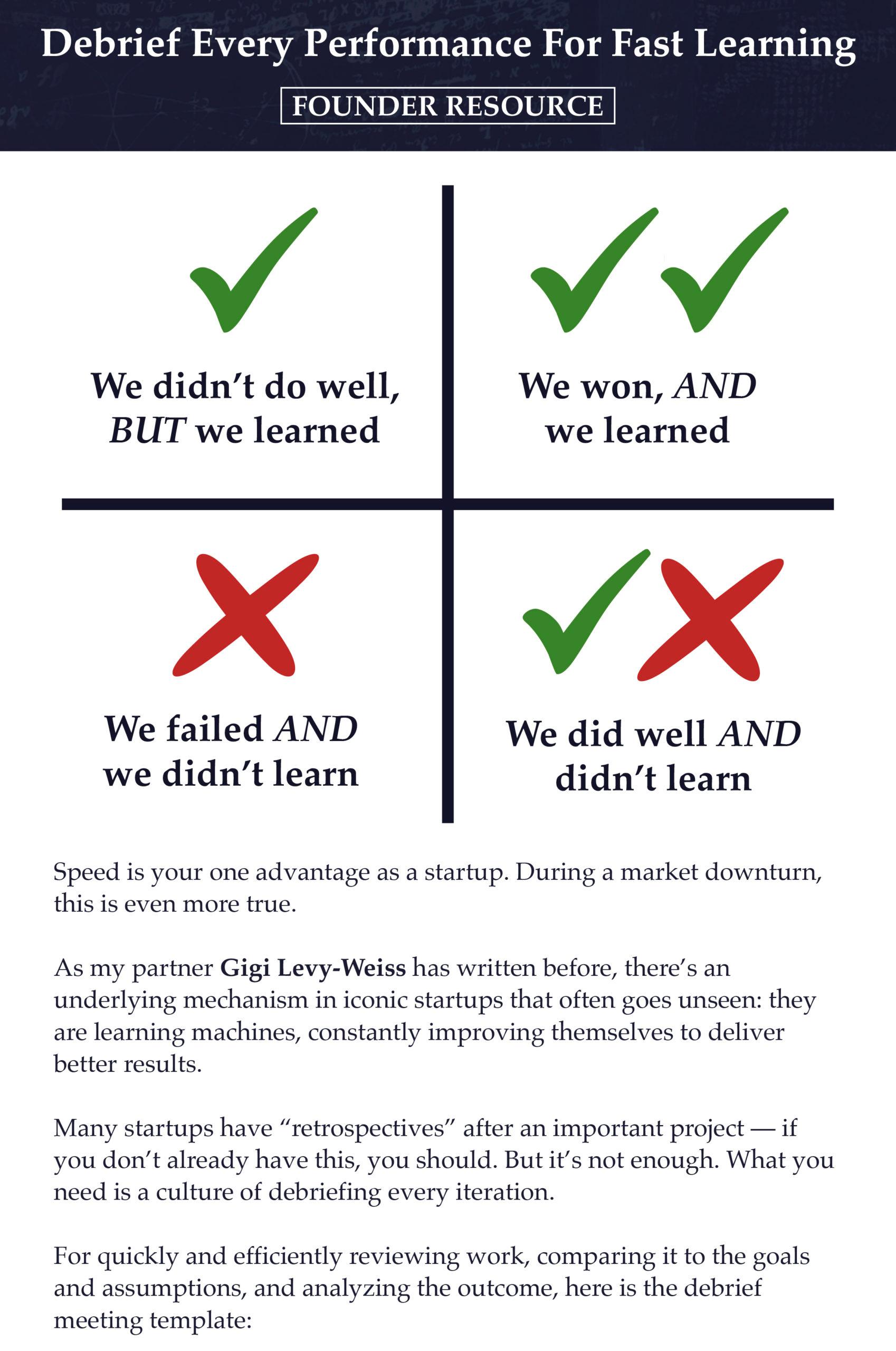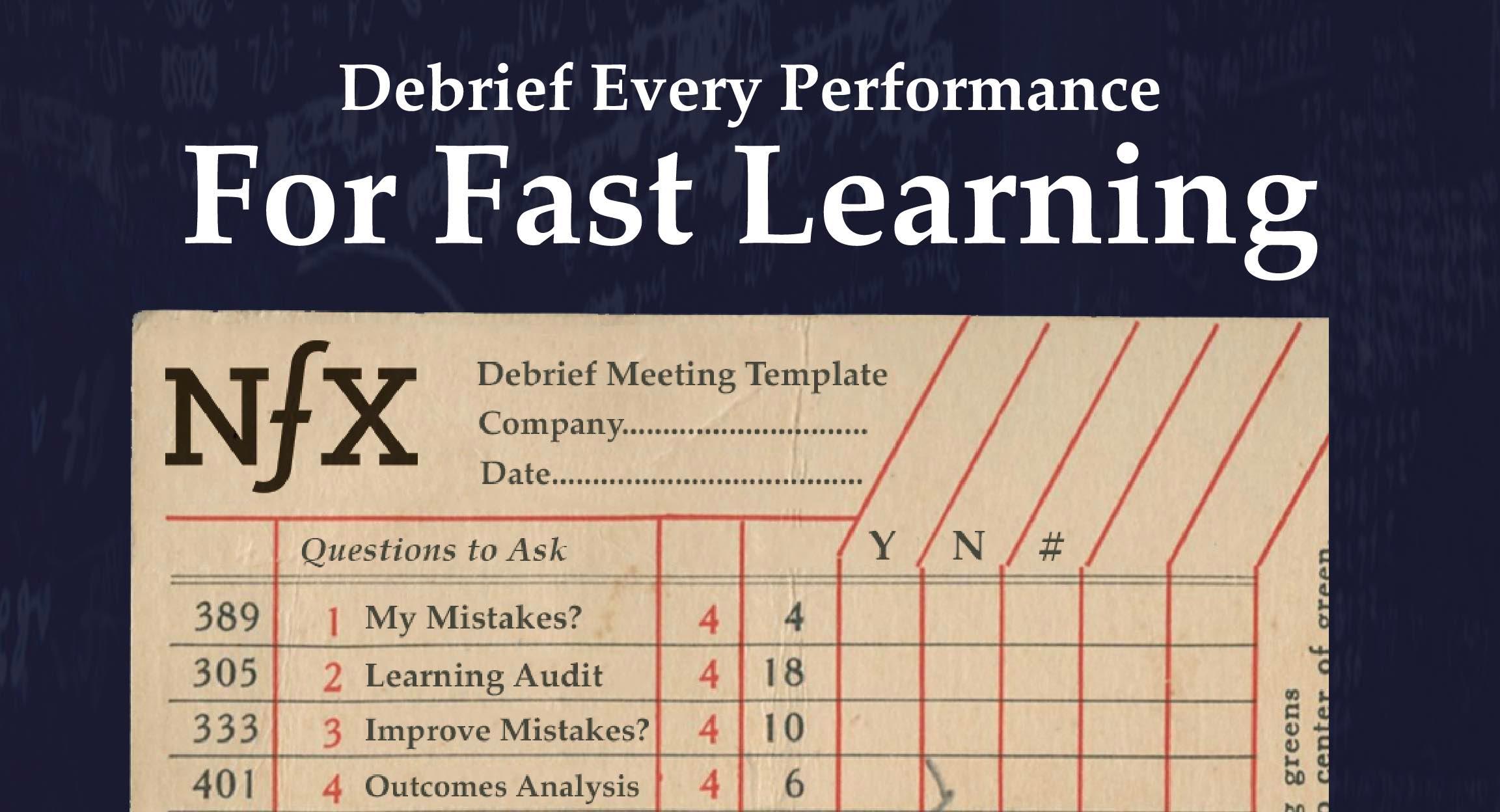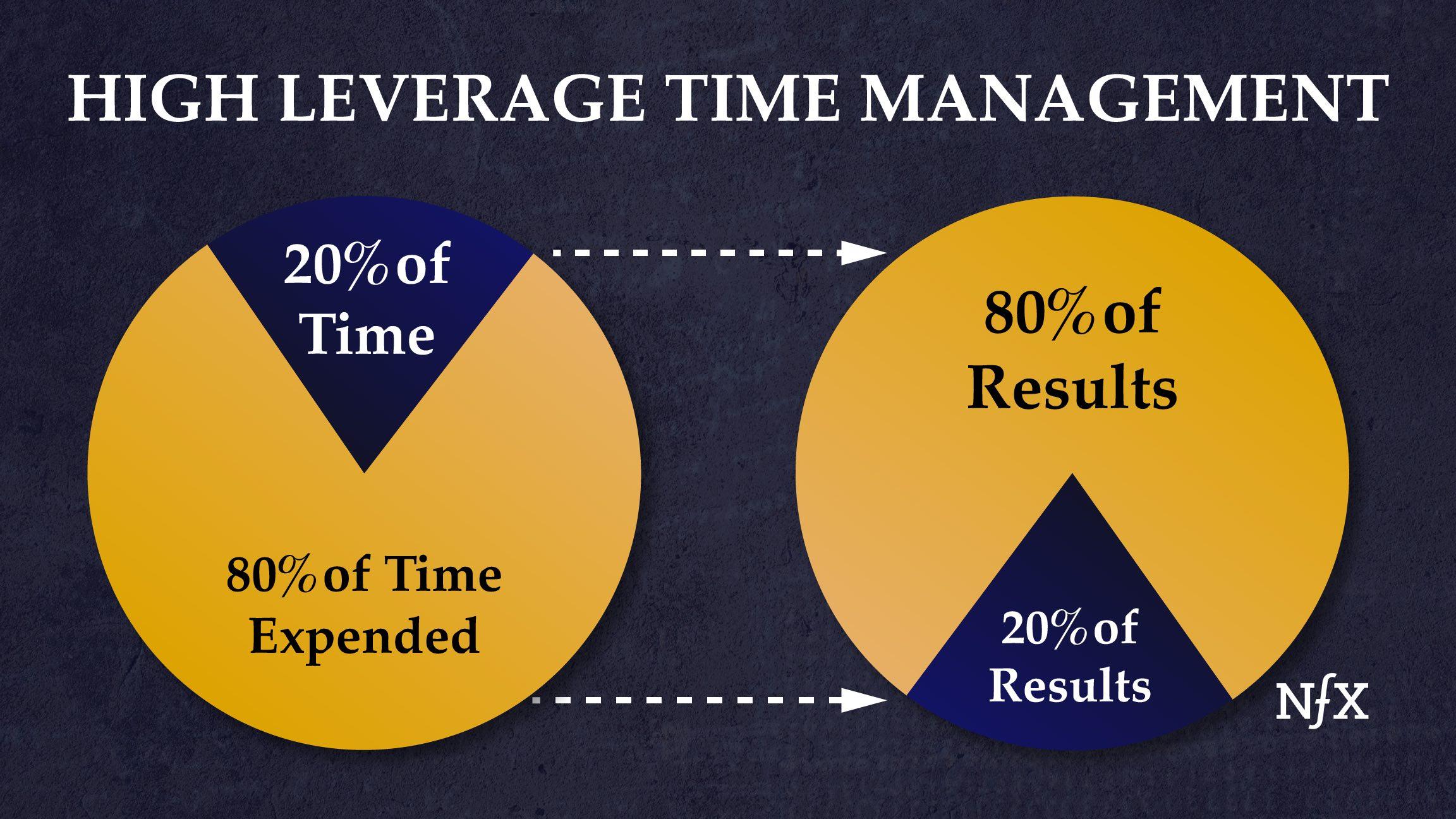For Founders, time is always in short supply. Being deliberate about how you spend it is an enduring, daily challenge.
In the early stages of your company, before you’ve achieved product-market fit, time management is easier because there’s only one thing that really matters: getting early users to love your product. This gives you a simple way to prioritize your calendar.
But as you go from running a product to becoming a CEO, it’s no longer as simple. Effective time management is about prioritizing and focus. But what you should focus on changes dramatically as you scale your company.
As a result, you have to develop a more robust set of time management tools and techniques. Today I want to share some of the techniques and mindset that I used as Founder and CEO of Trulia that gave me speed, focus, and effectiveness — resulting in the highest return on my time.
Also, because there are many equally effective approaches you can take and there is truly no one-size-fits-all solution, I invited a few breakthrough Founders to share their best time management advice, which you’ll find included below. (Thank you Michelle Zatlyn, Ryan Hoover, Gagan Biyani, Sami Inkinen, Julia Hartz, and Jessica Scorpio.)
Use routines (and speed) to reduce cognitive load
- Running a tight schedule. For example, my day is scheduled ahead of time in 15-minute increments. US President Bush used to schedule his workday in 10-minute increments, and likewise, President Obama’s workday included very little unscheduled time.
- Creating a routine to reduce unnecessary cognitive load and complexity in life. Mark Zuckerberg famously wears the same shirt every day “to make as few decisions as possible about anything else” except how to run his company. You don’t have to take it to that extreme, however — personally I think you need to have some flexibility, and allow for the kind of serendipity in your day that spurs creativity by changing things up on occasion.
- If it can be done quickly, do it now. Get in the mindset that if something can be done quickly, do it now, in keeping with David Allen’s famous concept from Getting Things Done that you should never put off something that takes two minutes or less, like sending a quick email reply. When you get something done quickly, it reduces your mental load and also establishes a habit of speed for the rest of your organization.
“Turns out that getting things done is a skill. Some people have a hard time starting a project and others have a hard time finishing a project. In a growing company, getting things done is super important since there is always more to do than time and people to do them.”
“As a manager, you need to make sure your team is both starting projects and finishing projects. If someone is great at getting going, but has a hard time completing the last 10%, pair them up with someone who can do that. Or vice versa. Asking questions “how can we get this going faster?” or “how can we deliver ahead of schedule?” can also be helpful.”
“It can help people think through constraints and how to remove them, and sometimes you will be surprised by how much you can accomplish. There is a difference between hard and impossible – and I have found that sometimes acknowledging that is important.”
Run High Leverage Meetings
- Keeping meetings short. We all know how meetings can be a productivity-killer. Revisit your recurring meetings on a regular basis, and ask which ones you can cancel or reduce the allocated time for. It’s critical to keep your 1 on 1s with those who report to you directly, but keep them really short and allow people to opt-out of them. Also, not everything has to be done in a meeting: always ask what can be done better via email or other more time-efficient communication.
- Practicing meeting management. Make it clear that each meeting needs to have a clear agenda, clear purpose, clear owner, and clear follow-up notes — especially for any meeting longer than 15 minutes.
“The key to productivity for me: Limit meetings. It’s very easy for teams to fall into a meeting-heavy culture. At Product Hunt we collaborate asynchronously the majority of the time, using Slack, Loom, Trello, and other tools. We limit meetings to 1-on-1’s, weekly project check-ins, and occasional brainstorms. This work culture is especially important for distributed teams that work across time zones.”


Delegate & Say No
- Delegating as you scale. The only way to prevent your calendar from being overwhelmed as your company grows is to free up time by delegating with explicit instructions and responsibilities. Ask yourself if you are the best person to be making the decision or be in the meeting. If not, delegate.
- Say no. Saying yes to everything is the opposite of focus. You have to be disciplined and learn to say no to meetings, events, etc. that are not likely to be productive. Don’t succumb to FOMO and say yes to every opportunity that crosses your path.
“Pick your battles. Determine what areas (marketing? fundraising? product?) will be the most important to your success and focus on those. Otherwise, hire people who “manage up” well, delegate to them and stay minimally involved.”
“The more stuff you need to “approve” or get involved in, the less time you’ll have for whatever is most important. This also means you should hire more competent people earlier in the company — even if it costs you significant (co-founder level) equity. Great people are always worth it, and bad people can be fired anyways.”
“Finally, I don’t do much angel investing or advising. If you want to be an investor, become an investor. If you are a startup entrepreneur, then you’ll make 90%+ of your net worth from that. Just like with hiring great people, I pay 1% to a financial advisor and he manages everything — I never have to think about investing.”
“As a company grows, learning how to give away some of the responsibilities to others on the team is critical. This is true both for founders as well as others on the team. As we grew from 300 to 1000 people at Cloudflare, you would often find people talking about “Giving Away your Legos” inspired by this article. It was helpful to have common language that everyone on the team could use.”
“Prioritization and accountability are important. When we were an early startup, we had a prioritization and accountability process that happened every three weeks. As we grew that lengthened to every six weeks and today, we go through it quarterly. It is part of our operating muscle as a company. Acknowledging what is and isn’t going to get done every quarter, and who is responsible for it, is helpful with time management, and more importantly, operational execution.”
Constantly Recalibrate Your Focus
- Perform regular time audits. Think about what you want to be spending your time on, and look back on your calendar to find out if you actually are spending your time in that way. Looking back on a weekly or monthly basis and making adjustments will really pay off over the long term. I used to change up my own management schedule every 12-24 months as the business evolved.
- Define the purpose of your time. It helps to internalize this principle: start everything by thinking about the purpose of your time: “this day/meeting/period of time will be a success if X happens”. This is likely to shift as your company grows, from product-building in the beginning to comms/HR later on.
- Important, not urgent. Learn to distinguish between the important and the urgent, and focus on the former.
- Give yourself space to focus. I’m also not a big believer in multitasking. When I’m doing something really important, I like to turn off all my notifications and even physically escape to a secluded, solitary environment.
“Every founder has an order of magnitude more things to do than she has time for. This can (or will) be stressful and make it feel like you’re constantly behind on everything. Simultaneously, startup whisperers everywhere tell you about ‘hustle as much as you can’. That can’t work.”
“After almost 20 years (!) as an entrepreneur and founder, I think the reality is that when I look back every year, it’s just 2-3 hires, 2-3 decisions and maybe a couple of other things such as fundraising or a key customer, that delivered 95% of the value and impact for the company that year and beyond. So it is extremely important to identify these key levers weekly, monthly and quarterly and spend at least 30 mins each week to allocate time so that those few things get done and almost everything else gets a “no”.
“In the absence of a clear project/problem to solve, I always think about three things: (1) People, (2) Cash, (3) Strategy. If we have the capital to build, the very best people in the world (who are happy and productive) and we are cutting trees in the right forest, I’ve done 95% of my job as a founder & CEO. Everything else can wait.”
“Time is a fixed resource. Its scarcity makes it the most precious unit to manage. I focus my effort in time management on auditing the time I spend against my highest priorities. I color-code my calendar so it’s easier to audit and I quantify the amount of time I spend on certain things like hiring, strategy, communication, etc. against the areas that I’ve identified as the highest output for my time.”
Adjust Time Management Techniques As You Scale
- Ultimately, time management comes down to prioritization. It’s about constantly thinking about the highest points of leverage for your time and making adjustments as your company grows.
- Early on the emphasis for Founders is on product management, and it will naturally gravitate towards HR (culture & recruiting) and communication. Founders who are builders may have a proclivity against those things and will be tempted to continue spending the majority of their time on product, even when that is no longer the best use of your time. It will take active effort and discipline to rebalance your calendar for the new needs of your business.
“One of the best strategies I’ve found for time management is prioritizing my time vigilantly. I have ADHD as many entrepreneurs do. This can be a strength but also needs to be managed. I identify a short list of priorities the night before and rank order them. Sometimes I set a time limit per task in advance and set a timer. Managing my calendar effectively is also a big point of leverage. It’s important to reassess standing meetings and consider setting shorter meeting times with buffer. I think it’s extremely important to be present. By scheduling certain types of work at the most appropriate time a feeling of flow can be accomplished.”
Prioritize Your Own Health & Learning
- Prioritize your health. Sleep, exercise, and nutrition are a must for a healthy mindset. Every hour you gain at the cost of your health will be paid for by decreased energy and cognitive performance across the board.
- Learn from others. As I wrote in How CEOs Think, seeking out advice and feedback is key. The more advice you can get on your time management, the better. Get regular feedback from a coach, mentor, or peer set so you can learn how to improve your time management skills so that your organization can thrive as well.
“Having a healthy lifestyle – exercising most days, meditating, sleeping and eating healthy helps me be more effective. Having a set schedule for these things makes it easier to maintain the routine. It can seem boring but it really works. By being more successful at managing myself I can also be a better leader. Trusting and delegating more to direct reports makes it possible to spend time on the most important things. Being intentional with my time and limiting distractions is key. For instance having set time for email and realizing what events or activities are truly value add is time expanding.”
Communication Habits Are The Key
Communication is key to maximizing leverage on your time. Communication is about repeating in a clear way what needs to be done.
I try to end every day with inbox zero because I find that if I let a backlog of communications build up, it can have a snowball effect. I try to reply to every email within 24 hours as a result.
Communication is also about making sure that the people on the team who aren’t communicating are communicating more, and that goes hand in hand with building the right culture and investing time into recruiting the right talent.
By building the right communication habits, you make it easier to delegate and focus your time even as your organization grows.


As Founders ourselves, we respect your time. That’s why we built BriefLink, a new software tool that minimizes the upfront time of getting the VC meeting. Simply tell us about your company in 9 easy questions, and you’ll hear from us if it’s a fit.

